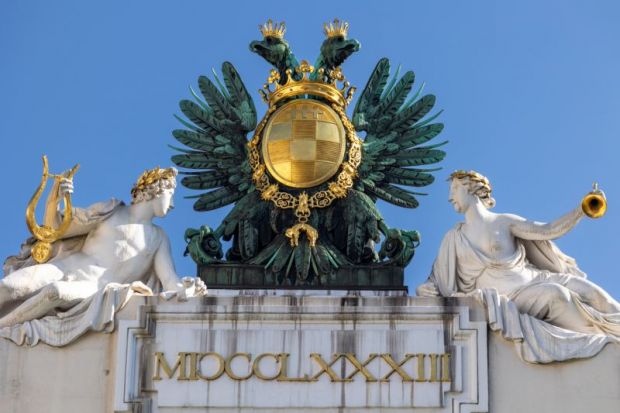A private educational institution with close ties to the populist Hungarian prime minister Viktor Orbán has bought a majority share in a Vienna-based university in what scholars fear is an attempt to spread his influence across Europe.
The Mathias Corvinus Collegium (MCC) – branded by one professor as a “global centre for Orbán-style conservatism” – now owns a 90 per cent stake in the Modul University Vienna, a big step in its international expansion plans.
MCC was founded in 1996 thanks to a donation from András Tombor, a Hungarian businessman and philanthropist with links to the national-conservative Fidesz party, which has dominated Hungarian politics for more than a decade.
The institution has unusually close links to the party. Its chair of trustees, Balázs Orbán (no relation), is the political director for Mr Orbán, and János Csák, the current minister for culture and innovation, is among its patrons.
It began by offering tutoring and professional development to select high school and university students, later expanding into research, book publishing, leadership and doctoral training. It has 14 study centres in Hungary and nine abroad.
The MCC said the acquisition would allow student exchanges to Vienna and help it cater to students “from the Carpathian Basin”, referring to the culturally Hungarian regions outside the country’s borders. In addition, it will enable MCC academics to collaborate with Modul’s well-cited staff and join “major international research projects”, the Budapest-based institution said.
Despite its political ties, Karl Wöber, the president of Modul, told Times Higher Education he had no concerns that the acquisition would lead to political interference, adding that the MCC had not shared any plans to alter Modul’s teaching or research.
“Modul University Vienna will always be independent of political influence, whether from MCC or any of our other or previous owners,” he said.
Fidesz has been criticised for its interference in Hungarian higher education, especially the passing of a 2017 law that imposed a raft of licensing measures on foreign-accredited universities, forcing the previously Budapest-based Central European University (CEU) to shift its operations to Vienna.
In contrast, in 2020, another Fidesz bill gifted two properties and a package of valuable state-owned petroleum and pharmaceutical shares to the MCC, which has allowed it to expand domestically and internationally.
Dorit Geva, a political sociologist at CEU, said the MCC was the antithesis of her university, which was set up to nurture a generation of liberal intellectuals after the fall of communism. With the MCC, “you have to very strongly replace liberal with conservative,” she said.
“Going to an event at MCC really feels like what CEU had been in the past: extremely well-endowed, very open-feeling, very international,” Professor Geva continued.
“It has the feel of a place that is making a name for itself and where a new generation is taking form. That was absolutely the CEU project,” she said, adding that its ambitions exceeded CEU in that it offered programming for those of primary school age.
Professor Geva said the institution, opposite a park on the west bank of the Danube, had sought to be the “global centre for Orbán-style conservatism”, but that although the MCC had hosted luminaries of the US right, such as broadcaster Tucker Carlson, its perspective was deliberately European.
“The intellectual project is unique and different from American conservatism,” she said. “It’s not a Thatcherite vision of the role of universities and higher education. There is a religious concept of ‘spirit’ that goes beyond preparation for the job market.”
Professor Geva said the recent acquisition of Modul was “emblematic of Orbán’s ambition to transform the European political map through education”. The MCC had not responded to these claims at the time of writing.
Register to continue
Why register?
- Registration is free and only takes a moment
- Once registered, you can read 3 articles a month
- Sign up for our newsletter
Subscribe
Or subscribe for unlimited access to:
- Unlimited access to news, views, insights & reviews
- Digital editions
- Digital access to THE’s university and college rankings analysis
Already registered or a current subscriber? Login








